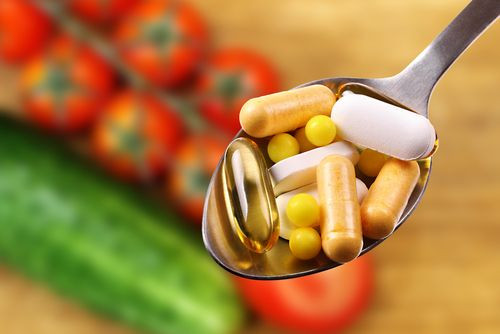Dietary, Herbal Supplements Lead To Liver Damage 20% Of The Time

So much for health: A new study published in the Journal of Hepatology found dietary and herbal supplements lead to liver damage 20 percent of the time.
"While many Americans believe supplements to be safe, government regulations (Dietary Supplement Health and Education Act of 1994) require less safety evidence to market products than what is required for conventional pharmaceuticals" Dr. Victor Navarro, lead study author from Einstein Medical Center Philadelphia, said in a press release. “With less stringent oversight for herbals and dietary supplements, there is greater potential for harmful consequences including life-threatening conditions."”
From 2004 to 2013, Navarro and fellow researchers examined the hepatotoxicity levels in 839 patients suffering from liver injury, focusing specifically on whether levels were a result of taking supplements or medications. Hepatotoxicity is essentially chemically-driven liver damage.
And the results showed liver injuries from supplements increased by 20 percent over the almost 10-year study. Bodybuilding supplements cause prolonged jaundice, but non-bodybuilding supplements increase risk for transplants and death by 13 percent. Otherwise medications only increase these chances by three percent.
"Our study group is specific to [certain] centers and therefore we cannot conclude that liver injury due to herbals and dietary supplements in on the rise in the U.S.,” Navarro said. “Further population-based study of liver injury due to herbal products and dietary supplements is needed."
More than 900 drugs, toxins, and herbs have been linked to liver injury, according to Medscape. And “drug-induced hepatic injury is the most common reason cited for withdrawl of an approved drug.”
With regard to vitamin and herbal supplements, Medical Daily previously reported vitamin E and selenium supplements increase risk of prostate cancer, and vitamin D (poor thing) is consistently debunked by science.
A better bet is to consult your doctor before raiding the supplement aisle. Before that, reassess your diet and see if it’s lacking natural food sources of essential vitamins. Light tofu, cooked spinach, avocados, and almonds are rich in E, while salmon, eggs, mushrooms, and ricotta cheese are rich in D.
Same goes for those interested in dietary supplements. Either consult your doctor or reassess your current diet and lifestyle. Improving overall diet quality doesn’t lead to weight loss, but it reduces risk for a slew of additional disease, like cardiovascular disease and diabetes.
Taking a supplement to bulk up? Switch to sprint intervals versus hours on the treadmill, as well six small, protein- and carb-rich meals per day.
Source: Navarro V, Barnhart H, Bonkovsky H, Davern T, Fontana R, et al. Liver injury from herbals and dietary supplements in the U.S. Drug-Induced Liver Injury Network. Hepatology. 2014.



























